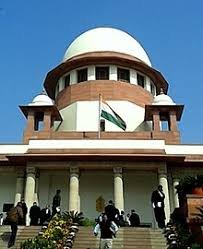This judgment addresses crucial questions regarding the availability of deemed export benefits and the definition of “Change in Law” in the context of Power Purchase Agreements (PPAs) for thermal power projects. The Supreme Court of India dismissed appeals by Nabha Power Limited (NPL) and Talwandi Sabo Power Limited (TSPL), affirming that they were not entitled to the claimed benefits or compensation.
Basic Facts
Appellants: Nabha Power Limited (NPL) and Talwandi Sabo Power Limited (TSPL), Special Purpose Vehicles (SPVs) formed to develop coal thermal power projects in Punjab. Respondent: Punjab State Power Corporation Limited (PSPCL), a state-owned power generating and distributing company.
Dispute Origin: NPL and TSPL sought restitutionary relief under Article 13 of their Power Purchase Agreement (PPA) with PSPCL, claiming compensation due to the post-bid withdrawal of fiscal incentives, specifically “deemed export benefits” under Para 8.3 of the Foreign Trade Policy 2009-2014 (FTP). They argued that notifications by the Directorate General of Foreign Trade (DGFT) and a Cabinet Press Release constituted a “Change in Law” under the PPA.
Lower Court Decisions: The State Commission and the Appellate Tribunal for Electricity (APTEL) consistently rejected NPL’s claims, holding that the benefits were not available and their withdrawal did not amount to a “Change in Law”.
Law Involved
The core legal instruments and concepts at play were:
Foreign Trade Policy 2009-2014 (FTP): Specifically, Para 8.3 on deemed export benefits and Chapter 8 on “Deemed Exports”.
Power Purchase Agreement (PPA) dated 18.01.2010: Particularly Article 13, defining “Change in Law” and the conditions for compensation.
Definitions: “Goods,” “Capital Goods,” and “Manufacture” under the FTP and related statutes like the Central Excise Act, 1944.
Procurement Procedures: International Competitive Bidding (ICB) and Tariff-Based Competitive Bidding.
Other Legal Principles: Legitimate expectation and promissory estoppel.
Reasoning
The Supreme Court addressed three common questions of law:
- Whether a Press Release of Cabinet Decision or DGFT Notifications constituted a “Change in Law” under the PPA:
The Court referred to its prior 3-Judge Bench decision in Nabha Power Limited (supra), which directly covered this issue.
Article 13.1.1 of the PPA defined “Change in Law” as an enactment, amendment, or repeal of any Law after the bid cut-off date.
A Press Release dated 01.10.2009 was held not to be a “binding command” or “order”, as required for a “Law”. Laws, whether parliamentary or subordinate, must be duly published in the official gazette to take effect.
Claims of legitimate expectation or promissory estoppel were rejected because the Central Government was not a party to the PPA, and no court order gave the Press Release legal force.
Only Notifications dated 11.12.2009 and 14.12.2009 amounted to “law” and thereby “Change in Law,” meaning the Press Release did not.
- Whether deemed export benefits under Para 8.3 of the FTP were legitimately available to the Appellants as of the bid cut-off date: The Court identified five essential prerequisites for claiming deemed export benefits under the FTP, none of which the Appellants satisfied:
“Goods” Requirement: Benefits are for movable “goods”. A thermal power plant, being an integrated, immovable asset assembled on-site, does not qualify as “goods” and fails the “marketability test”.
“Manufactured in India” Requirement: “Manufacture” under FTP Para 9.36 implies bringing into existence a new product with a distinctive name, character, or use. Construction of a power plant, despite assembling components, does not constitute “manufacture” in this commercial sense, particularly for export purposes.
“Supply of Goods” Requirement: The FTP envisions a “supply of goods” to a power project. The Appellants’ contention that the entire power plant was “capital goods” supplied to itself was rejected as one cannot “supply a power plant to itself”.
Supply by Main/Sub-contractor: The benefits accrue when goods are supplied by a main or sub-contractor. The claim related to the project’s own manufacturing rather than a distinct supply of goods by a contractor.
International Competitive Bidding (ICB): Benefits under Para 8.2(g) for power projects require strict adherence to ICB for the procurement of goods. The Appellants’ Tariff-Based Competitive Bidding for selecting the power developer was not equivalent to ICB for the supply of goods and they failed to provide evidence of ICB for component procurement.
Based on the failure to meet these prerequisites, the DGFT notifications were deemed merely clarificatory of existing law, not a “Change in Law”.
- If so, whether Appellants are entitled to restitutionary relief in the form of compensation:
As the Appellants failed to establish the availability of benefits or a “Change in Law” in their favor, the question of compensation does not arise.
Holding
The Supreme Court dismissed both Civil Appeals (No. 8694 of 2017 and No. 8739 of 2017) as being devoid of merit. The Court affirmed:
The Press Release dated 01.10.2009 did not constitute a “Change in Law” under the PPA.
NPL and TSPL were not entitled to deemed export benefits under Para 8.3 of the FTP.
The DGFT notifications were clarificatory and did not amount to a “Change in Law”.
Consequently, the Appellants were not entitled to any restitutionary relief or compensation. There was no order as to costs.
NABHA POWER LIMITED V. PUNJAB STATE POWER CORPORATION LIMITED AND OTHERS
Supreme Court: 2025 INSC 1002 (DoJ 19-08-2025)






